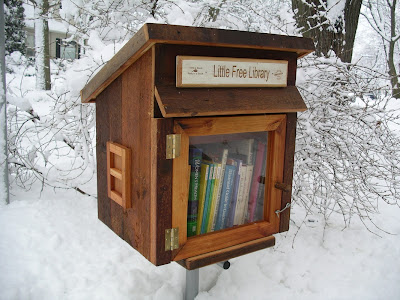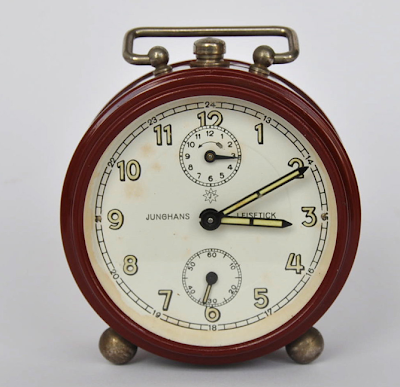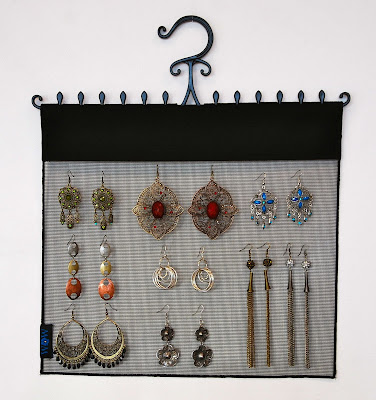 HOW do you do all this!?! I marvel over your lists and links! It has taken me HOURS to organize and try to give away a few things - I don't think people realize how much WORK it is to give things away!
HOW do you do all this!?! I marvel over your lists and links! It has taken me HOURS to organize and try to give away a few things - I don't think people realize how much WORK it is to give things away! — e-mail from a Freecycler to me
I use Freecycle a
lot. I'm sure that, over the years, I've gotten rid of thousands of things using
my local Freecycle group. Just this past Sunday, I found new homes for 40 CDs, 14 DVDs and 7 VHS tapes.
How do I do it? Like this!
1. Group the things to be Freecycled.
It's good manners — and more efficient for all concerned — if similar things are grouped in one post. So when I have a bunch of things to Freecycle, the first thing I do is put like with like.
2. If it's a seasonal item, stash it away for Freecycling later.
I have boxes in my garage of things to Freecycle at Halloween, Thanksgiving, Christmas, etc. Things that no one wants in April can go in no time as the holidays approach. Fortunately, I have plenty of room to store a few boxes like this.
3. Determine how best to describe the items.
Some things are straightforward. A DVD of a well-know movie needs nothing more than the title.
For lesser-known items easily found on the web, I'll include a link with my post. That works for books, CDs, DVDs, and many brand-name items.
But for some things,
only a photo will do. I use my digital camera, upload the photos to Flickr, and include a link in my Freecycle post. If something is flawed, I make sure to get a photo that shows the flaw.
And, of course, listing dimensions helps for many things. How tall is that vase?
4. Respond to requests, deciding who to give things to.
If multiple people ask for the same thing, I'll decide between them partly based on the person's history with me. Yes, I do keep track of that. I file the e-mails from people I've given things to into one of two folders: the one for reliable Freecyclers or the one for unreliable Freecyclers. Then when someone asks for a new item, I can search my messages to quickly see if I've given to the person before, and how reliable the person has been. Which folder are the person's messages in?
The vast majority of people in my Freecycle group are very good about picking things up, but it seems every groups has a few flaky people. But flakiness can also be fluid; one of my least reliable recipients in years past has changed into someone who is extremely reliable now.
5. Package up the things being taken.
If someone is getting just one thing, I'll just put a sticky note on the item with the person's name — unless the weather is bad, and I need to put things in plastic bags for protection.
If someone is getting multiple things, I'll put them in a bag or box with the person's name on it.
If things are being picked up over a number of days, I'll make notes on my calendar as to who is picking up on which days, so I don't forget to set things on my porch on the appropriate days.
I do all of this right away — as soon as I've said yes to someone's request — so I don't lose track of who's getting what, and when.
6. Let people know things are taken.
On Flickr, I'll add a TAKEN note on things that have been claimed. And I also send out the appropriate TAKEN messages on Freecycle itself.
7. Follow up on any pickups that don't happen.
I have a "Freecycle - waiting for" e-mail folder. If something stays on my front porch past the expected pickup time, I'll go into that folder and send a reminder message. If I don't hear back after a day or two, I'll re-offer the items to the group.
8. Send along thank-you notes to my clients.
This is my favorite part! Recipients often send thank-you e-mails, and I like to forward these along to my clients — after deleting the recipients' names and e-mail addresses. My clients love hearing about how their things found perfect new homes: the old VHS tape of a movie going to someone who
loved that movie; the school supplies going to a grateful teacher; the books that will never be re-read going to new people who
will read them; the unloved vase going to someone who deems it beautiful.
And I understand that reaction; I feel exactly the same way when the Freecycle items happen to be my own, rather than a client's.
Yes, Freecycling can be much more work than dropping things off at Goodwill or the local charity thrift store. (And I do use both of those for certain types of things.) But, in many cases, Freecycling is also more rewarding.
And, by now, I have it down to a science.
Related Post:
How to Reply to Offers on Freecycle












































